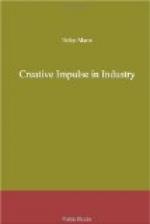ADAPTING PEOPLE TO INDUSTRY—THE GERMAN WAY
Statemanship in Germany covered “industrial strategy” as well as political. Its labor protection and regulations were in line with its imperial policy of domination. Within recent years labor protection from the point of view of statesmanship has been urged in England and America. The waste of life is a matter of unconcern in the United States so long as private business can replenish its labor without seriously depleting the oversupply. It becomes a matter of concern only when there are no workers waiting for employment. The German state has regulated the conditions of labor and conserved human energy because its purpose has been not the short-lived one of private business, but the long-lived one of imperial competition. It was the policy of the Prussian state to conserve human energy for the strength and the enrichment of the Empire. Whatever was good for the Empire was good, it was assumed, for the people. The humanitarians in the United States who tried to introduce labor legislation in their own country accepted this naive philosophy of the German people, which had been so skilfully developed by Prussian statesmen, without appreciating that its result was enervating. Our prevailing political philosophy, however, that workers and capitalists understand their own interests and are more capable than the state of looking after them, stood in the way of adopting on grounds of statesmanship the German methods.
The American working man has never been convinced that he can get odds of material advantage from the state. His method is to get all he can through “pull,” good luck or his superior wits. He could find no satisfaction like his German brothers in surrendering concrete interests for some abstract idea of a state. He could find no greater pleasure in being exploited by the state than he now finds in exploitation by private business. The average American values life for what he can get out of it, or for what he can put into it. He has no sentimental value of service, nor is service anywhere with us an institutionalized ideal. We judge it on its merits, detached perhaps, but still for what it actually renders in values.
In conformity with American ideals, wage earners look to their own movements and not to the state for protection. Their movements require infinite sacrifice, but they supply them with an interest and an opportunity for initiative which their job lacks. The most important antidote for the workers to factory and business methods is not shorter hours or well calculated rest periods or even change-off from one kind of routine work to another. As important as these may be, reform in labor hours does not compensate the worker for his exclusion from the directing end of the enterprise of which he is a part and from a position where he can understand the purpose of his work The trade union interference with the business of wealth production is in part an attempt to establish a cooerdination of the worker which is destroyed in the prosecution of business and factory organization. The interference of the union is an attempt to bridge the gulf between the routine of service and the administration, and direction of the service which the worker gives.




